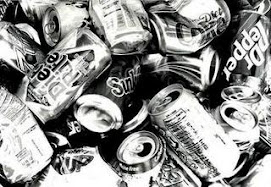As each day passes the world changes and evolves in predictable and not so predictable ways. As we look back on the world and even the country alone, we see how much times have changed in just 100 years. From radio to television, from sinks to dishwashers society has developed in ways that we would never have thought possible. That makes me wonder... what will the next 100 years bring? What does the future hold in store for us? Although very different, in both 1984 and Brave New World, the future of our world hold frightening realities, "The final aim is the same; only the means are different" (125). Although both Orwell and Huxley may go about their ideas presented in a different, and sometimes complete opposite way, they both end up with the same, or very similiar overall messages. Many may argue that Orwell's 1984 is something that our society can not relate to and will never exist, however, already there are many aspects that ring true and are slowly developing into this controlled environment that we are so afraid of.
In 1984 many of Orwell's idea's seem very impractical and far to distant to become a reality. First of all, having telescreens watch over every single person seems like an idea that, even if it was presented, would never be put into effect due to inaccessibility and expenses. On the other hand, many people 200 years ago probably thought that something like satellite television was just as unlikely. Already people are losing their privacy one step at a time. Having the government invade through wiretapping or even something as simple as someone you don't know being ab le to view your house on the internet are both a small step in the loss of our individuality and the right to privacy. I would like to say that Orwell's ideas are completely impossible and could never happen, but with technology developing so rapidly it is to hard to make that assumption.
In both of the novels the past is something that does not exist or matter. In Orwell's the "past still survivesm though not necessarily the past as it actually occurred" (124). As we progress further into the future the past becomes something that we are reading in history books and hearing about from our grandparents. Already the Holocaust is becoming something that may not always appear to have happened the way it did. There is denial and different perspectives that alter what has happened. Once all of the survivors are dead, there is no longer any hard evidence of this event and evetually, just as in 1984, the past may be changed to make the world seem like a better place.
The fact that, in both novels, literature has been destroyed, reveals a sense of narrowing the mind. This may seem like something that people know will never happen, yet little do they know, that it is already taking place in our society. In 1984 there is no literature, art, or science. This keeps the people unaware of their abilities and lets them not be able to explore because they do not know how to. "O'brien's aim... is to produce 'neurologically' and by means of intense conditioning a 'new man,' a man almost asa new and genetically engineered and scientifically conditioned new man of Huxley's novel" (124). Although Orwell does not use conditioning, he is controlling the people by narrowing them down and not letting them think, by not teaching them how to. The elimination of words, not only makes the word non existent, but in turn, makes the item non existent. If there is no word for "desk," then there no longer will be desks. This idea of not letting people think is slowly creeping up on our society. In our country there are schools that are not teaching children how to analyze or discuss ideas, but only hand them facts in history. If they never get the chance to think and interpret the facts in their own way, how will they ever learn to think and interpret other aspects of life? If they are not taught how to do something, then they will never know how to do it. We are slowly narrowing the minds of children and molding (or conditioning) them into people we want them to become.
Although Brave New World, carries many ideas that we see exploding through our society, 1984 seems just as likely as a result. Even if Orwell was influenced by Huxley's ideas, it does not dismiss his work. Orwell took the aspects of Huxley's work and created his own perspective and almost an argument with Huxley to show that there are other and even more fierce ways that our society can turn.
Subscribe to:
Post Comments (Atom)

No comments:
Post a Comment